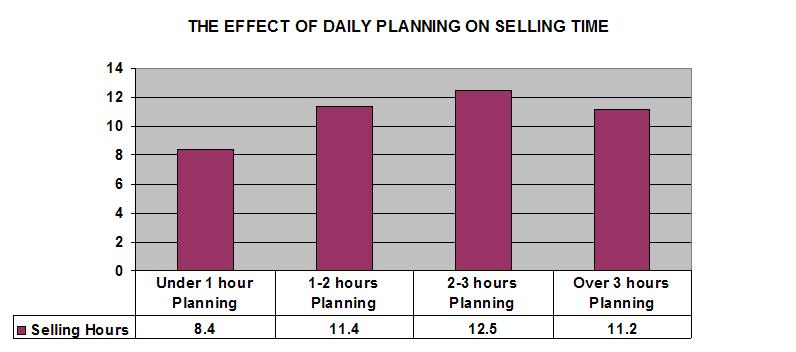Time management trainers always encourage you to plan your activities every day.
This makes intuitive sense. But what does a time and motion study reveal about planning time? We have conducted numerous time and motion studies since 1990 using our proprietary TimeCorder device. Employees track their own time with this portable device, which is easy to use. The results are anonymous, so employees provide honest feedback, resulting in a remarkable 94% participation rate.
One subset of employees that we regularly study is sales reps. Their main job function is to call on prospects and customers, aiming to increase sales and service existing needs. On a weekly basis, their planning time typically takes up 4.8 hours per week, or 10 % of a 47 hour work week. Planning activities are what we refer to as “A priorities” These are activities that affect one’s results a month or more in the future.
Included in these activities are determining long term strategies, territory management, account planning, deciding which customers to contact and presentation preparation. It also includes team meetings to plan strategies and share information, plus planning one’s daily to-do list.
Within the 4.8 hours per week on planning, most sales reps spend about 2 hours planning their daily schedule and activities. Another hour is spent in presentation preparation, and just under an hour in team meetings. The remainder is other planning activities, listed above.
So what do we know about planning and results? Are time management trainers correct to encourage you to do more planning? The answer is yes, to a degree. There is in fact a correlation between daily planning and time spent directly selling to prospects. (Selling time includes making presentations, calling, and sending emails.) The chart below shows four groups of sales reps, distinguished by how much daily planning they do each week.

Those who plan more are able create more time for selling – but only to an extent. Spending 2-3 hours per week, or 24 to 36 minutes per day results in 12.5 hours for selling. This represents 26% of the time. However, too much time spent doing daily planning (over 3 hours per week) becomes counterproductive and as a result, selling time decreases, as shown in the bar on the far right.
So be sure to invest the time to plan well. It’s easy to procrastinate, or to let interruptions get in the way. Instead, take the time to focus on your goals. But don’t go overboard. Your time is worth it.


0 Comments